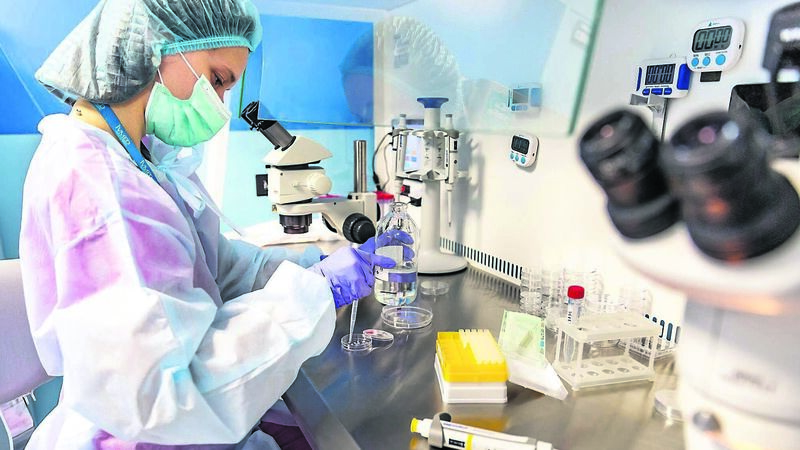Irish families continue to avail of Ukraine surrogacy services

An embryologist, Oksana Lyzohub prepares reproductive cells in an IVF lab in ‘IVMED’ Fertility Center in central Kyiv. The clinic confirmed that Irish families are still using its service, despite Russia’s year-long invasion. Photo: Dominika Zarzycka/SOPA Images/LightRocket
Irish families hoping to have a baby through surrogacy abroad are still using services in Ukraine, despite the ongoing war, a clinic in Kyiv has said.
It comes after the Government issued a strong warning to couples planning to use a surrogate mother in Ukraine not to travel to the war-torn country. In a statement to the , a spokesperson for the Department of Foreign Affairs said the advice is not to travel to there.














